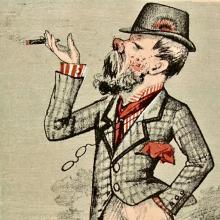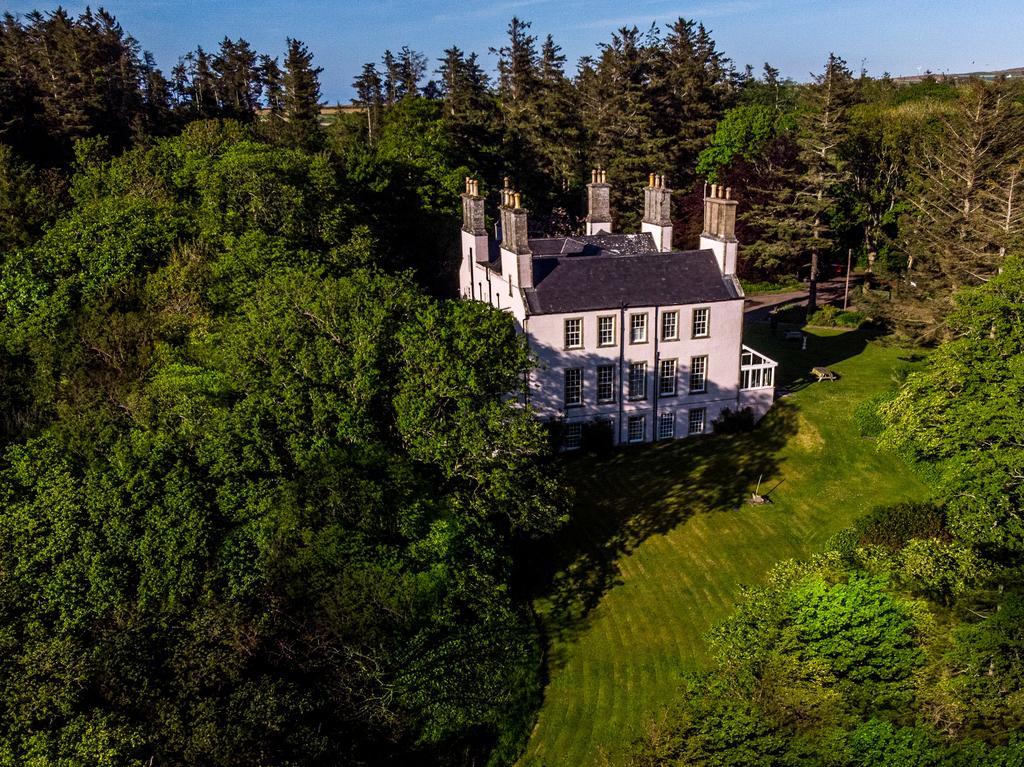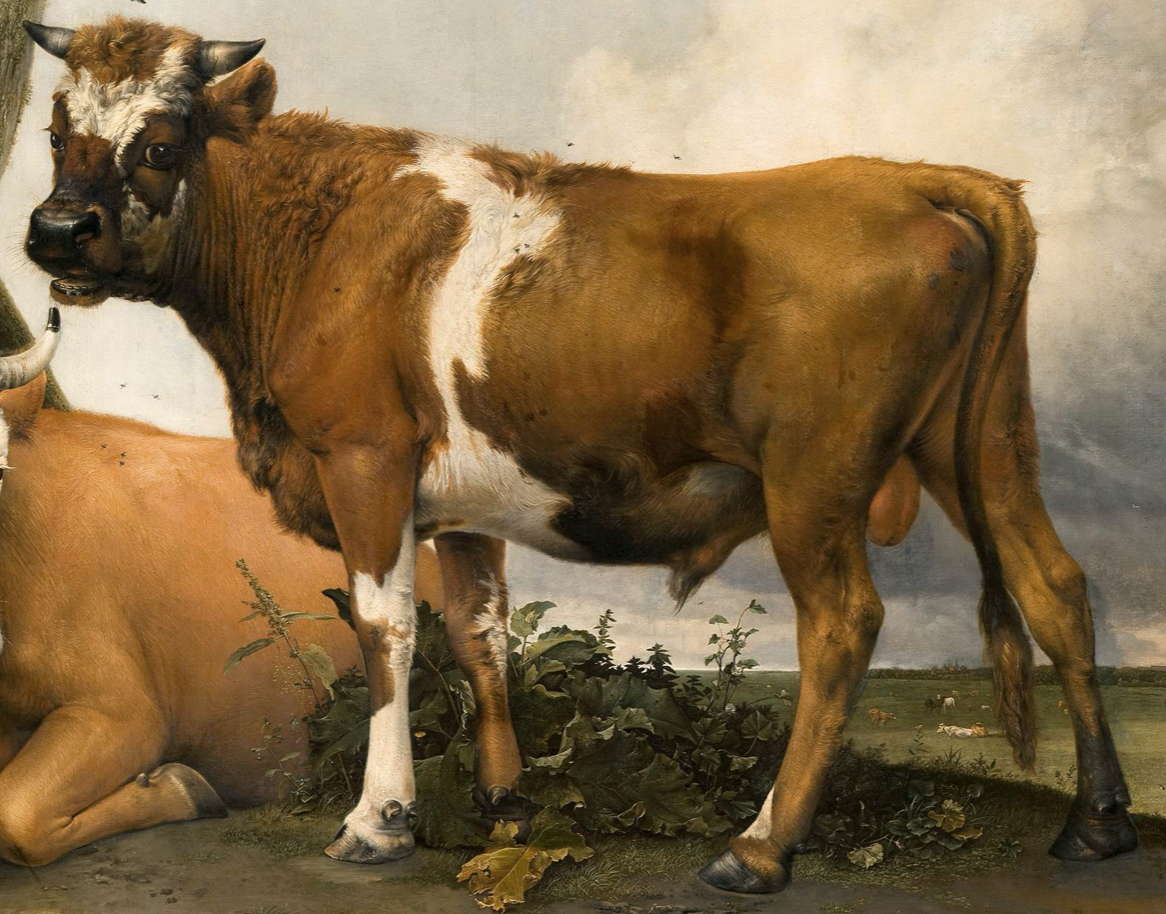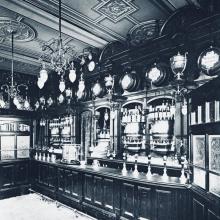
April 1858
POLICE COURT—Wednesday
(Before Sheriff Hallard.)
A PUBLIC-HOUSE CONTRAVENTION CASE.
“A SCENE.”
James M’Gregor, licensed hotel-keeper, West Register Street,[1] was brought up, charged with a breach of his certificate, by supplying liquor to Ramsay Sinclair and John Thomson, in his premises, on Sunday the 4th instant, they not being lodgers or bona fide travellers. The defendant pled not guilty, and the case went to trial. Mr Bell appeared as agent for the defendant.

Ramsay Sinclair, the first witness examined, deponed that he, with three of his acquaintances, went to Mr M’Gregor’s Hotel on the forenoon of Sunday, the 4th instant, at eleven o’clock, and were supplied with four glasses of whisky, which they consumed on the premises, 2s 6d having been the sum paid; that, on the same evening, about five o’clock, he went again to the same place with a lad named John Thomson, and obtained two glasses of whisky, for which 8d was charged.[2]
He further stated that, on coming out of the hotel on the second occasion they were met by a detective, who cross-questioned them as to what they had been doing in the hotel. They told him the truth of the matter, and were taken back to the hotel, where they identified the individual who supplied the liquor.
Mr Bell—What are you, Mr Sinclair?
Witness—I don’t feel bound to answer that question. I don’t think it signifies.
Mr Bell—Well, but I want to know what you are?
Witness—I don’t think that concerns the case.
Mr Bell (to the Sheriff)—I appeal to your Lordship—
Witness—Well, I am a gentleman; that’s what I am—(laughter).
Mr Bell—You mean you are the son of a gentleman?
Witness (emphatically)—No. I am a gentleman.
Mr Bell—You are the son of Mr James Sinclair of Forss?
Witness—It does not signify who I am, and I don’t intend to answer.
Mr Bell (with emphasis)—Are you the son of Mr James Sinclair?
Witness—I don’t intend to answer.
Mr Bell (to the Sheriff)—Your Lordship, I say this man is no gentleman. I wish to trace him; to get his genealogy to some slight extent.
Sheriff (to the witness)—Then just answer, Mr Sinclair.
Witness (fiercely)—I am the son of James Sinclair, Esq. of Forss; that’s who I am, if you want to know.[3]

Mr Bell—In what employment have you been?
Witness—That has nothing to do with the case: and I don’t intend to answer it.
Mr Bell—But I intend to have an answer. I say you are a spy, and something worse—(sensation).
The Sheriff—Take care, Mr Bell; that is going a little too far.
Mr Bell—I wish to know how this man has got his living for the last three or four years. I am entitled to allege, as was done in the English Court the other day by Mr James, that this man is a spy and something worse.[4]
Sheriff—You must remember that that question was disallowed, Mr Bell, and I am not going to reverse Lord Campbell’s decision. You are quite entitled to put questions to prove that a witness is not credible; but I don’t see that your interrogations tend at all in that direction.
Mr Bell—I wish to show that this man is not a trustworthy witness on his oath—I wish to know what employment he has been in for the last three or four years.
Witness—(impetuously)—Living on my money (uproarious laughter).
Mr Bell—Have you during that time been boots[5] in any hotel?
Witness—No, never.
Mr Bell—Have you ever been under-waiter in any hotel?
Witness—I don’t know—I don’t recollect.
Mr Bell—You don’t recollect, don’t you? Since the commencement of this year, have you been boots or under-waiter in any hotel in Edinburgh?
Witness—That’s a question I don’t intend to answer.
Mr Bell—Have you been in the employment of a turner in East Thistle Street Lane any time between the years 1855 and 1857?
Witness—Never.
Mr Bell—You were never in the employment of Messrs Nimmo and Son, turners?[6]
Witness—No, I am no turner.

Mr Bell—Do you know the North British Hotel in Princes Street?[7]
Witness—Well, I know it by seeing it.
Mr Bell—Is that all the connection you have had with it?
Witness—I don’t intend to answer that question. It has nothing to do with the case.
Mr Bell—Have you never been boots or under-waiter in the North British Hotel?
Witness—I don’t intend to answer that question.
Mr Bell—I appeal to the Sheriff if I am not entitled to an answer.
Sheriff—Well, you have an answer. What is it you wish to make out?
Mr Bell—I intend to show that the man has not been living on his money.
Sheriff—Well, if he has not been living on his own, he has been living on his friends’ money. There must be a reasonable limit to this. If you were to ask him if he had been convicted of any offence, or anything of that kind, these questions would have been to the point; but your questions do not affect his credibility. They merely go to this—that, being the son of a gentleman, he has not been living in that sphere of life in which the son of a gentleman might be expected to move.
Mr Bell—And we are expected to take it that this person is a gentleman, forsooth! I wish to show that he is a boots, an under-waiter, and a spy.
Witness—Aye, but that’s more than you can show.
Mr Bell—Does your Lordship hold that I am not to get an answer to these questions?
The Sheriff—I think it would be a waste of time: for even assuming that you got an affirmation to them all, does he cease to be a credible witness?—a gentleman is rather a vague term—(a laugh).
Mr Bell—Yes it is, my Lord, when used by cattle of this kind—(turning to the witness)—and since I am not to get any clue to your interesting history, what were you doing on the morning of Sunday?

Witness—I was preparing to go to church when I met three friends of mine, who wanted to get a glass, and we went together to Mr M’Gregor’s, and got a glass each. I had no conversation with the constable before that.
Mr Bell—You didn’t say to the constable, wait a minute or two and I will give you a “case?”
Witness—No; I didn’t say that.
Mr Bell—What, then, was your object in telling the police that you had got whisky?
Witness—Because I thought the whisky was so bad, and because they charged too much for it—2s 6d for four glasses.
Mr Bell—And yet you went back in the evening, and got other two glasses?
Witness (hesitating)—Yes. I wanted to see if they would give us the same stuff.
Mr Bell—Then it was a sort of experiment on your part?
Witness—Exactly.
Mr Bell—Now, sir, did you not prepare yourself for a “case”—did you not give information to the police between the first and second occasions? Did you not stipulate something about getting half the penalty?
Witness—No; I did not.
Mr Bell—Did you know that you would get half of the penalty as your reward if you got up a “case”?
Mr Linton—I know that he would not?
Witness—Any person but an old cow would have known that—(laughter).

Mr John Thomson corroborated the first witness’s evidence, and Golan the detective repeated substantially the same statement.
Mr Bell wished his Lordship could follow the example of the jury in Bernard’s case, and refuse to convict any man on the evidence of such a “gentleman” as the first witness. He hoped at least that the fact of its being a first offence would be considered in adjudging the fine.
The Sheriff sentenced the accused to pay the minimum fine—L.5—which he ordained to be paid to the Royal Infirmary. The fine was immediately paid.[8]
Caledonian Mercury, 22 April 1858
[Images: top-right, Royal Pavilion & Museums, Brighton and Hove; Royal British Hotel, creative commons, Geograph; young bull, creative commons, Wikipedia; old cow, creative commons, Wikipedia.]
[1] James M‘Gregor ran the National Hotel at 8 West Register Street (Edinburgh & Leith Post Office Directory, 1858–59]. It was situated immediately opposite the Guildford Arms Hotel and Tavern.
[2] They were charged 71/2d per glass in the first instance, and 6d per glass in the second. These sums equate to about £1.84 and £1.48 in today’s terms.
[3] James Sinclair, 12th Laird of Forss (1802–76), was a landed proprietor who resided near Halkirk and Thurso in Caithness. He married his cousin Jessie, and together they had 13 sons and 4 daughters. Ramsay was born in 1837 and so would have been about 21 at the time of this trial. He died in 1871 in Dundee without issue (SR Deaths 282/2 352).
[4] The trial, before Lord Campbell, was of Simon Bernard, an expatriate Frenchman charged with conspiracy in the Orsini attempt to assasinate Napoleon III in Paris in January 1858. Bernard’s lawyer, Edwin James, portrayed the case as a politically motivated attempt by the British government to curry favour with a foreign potentate. He suggested evidence had been gathered by underhand and unreliable means involving foreign police spies. By ‘and something worse’, Bell presumably means ‘agent provocateur’. Bernard was eventuallly acquitted against the summing-up of the judge. The whole case was widely reported in the Scottish press.
[5] Boots—a menial boots cleaner. In the North Briton newspaper of 17 April, the following advertisement appeared: ‘NOTICE. INFORMATION respecting the Occupation, during the last Three or Four Years of RAMSAY SINCLAIR, residing in Shakespeare Square, Edinburgh, and JOHN THOMSON, residing in Thistle Street, Edinburgh, will be thankfully received, before WEDNESDAY the 21st inst., by A. B., Office of this Paper, 309 High Street, Edinburgh.’
[6] Nimmo & Son, ‘turners and spinning wheel makers’, Edinburgh & Leith Post Office Directory, 1855–56.
[7] The North British Hotel in 1858 was situated at 21 Princes Street, where the Royal British Hotel is now. Not to be confused with today's Balmoral Hotel, which opened as the North British Railway Hotel in 1902.
[8] About £295 today, or 25 days’ wages for a skilled tradesman in 1858.
*****



